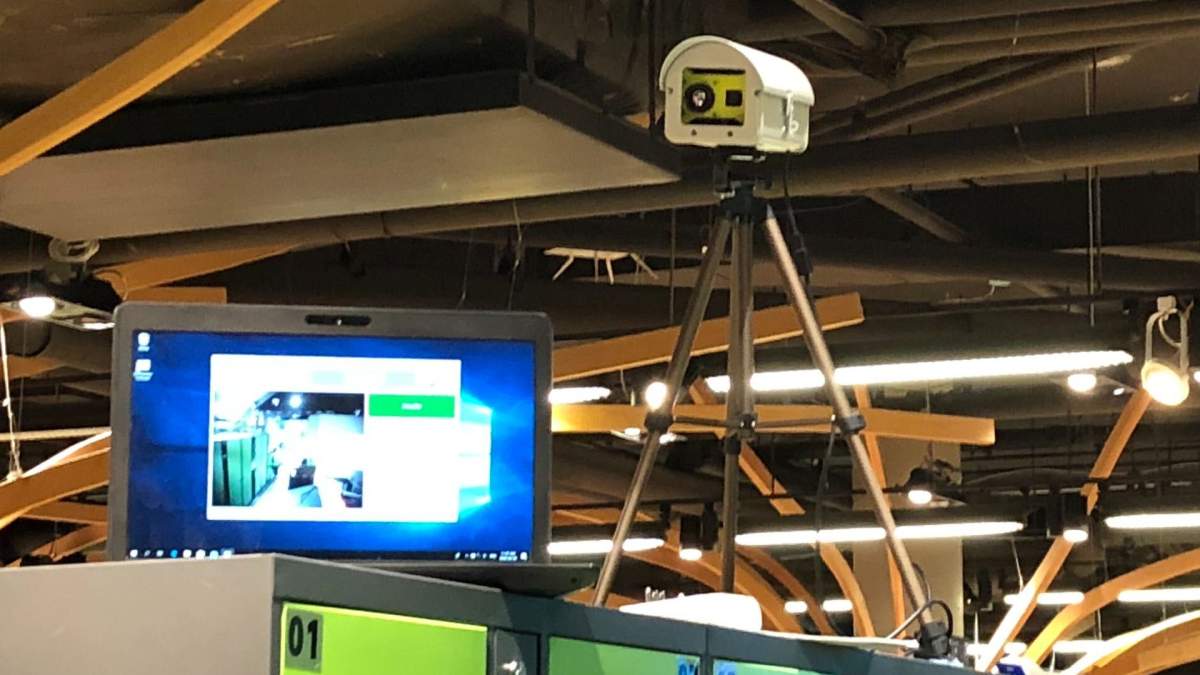A non-invasive thermal imaging technology with the potential to detect one of the symptoms of the novel coronavirus is being tested at a Hamilton, Ont., grocery store.

Hamilton startup Longan Vision, made up of McMaster University engineering alumni and students, has augmented its Gatekeeper project, creating a platform to scan people for elevated temperatures.
The main purpose of the technology, developed in just a few weeks, is to read the temperature of subjects in view of the device.
Gatekeeper is made up of two cameras — one normal and one thermal — which combine to produce images of people in view and provide visual temperature readouts of each person’s face.
Longan Vision, which works with McMaster’s entrepreneur program The Forge, has set up its pilot device at the front entrance of Nations Fresh Foods in Jackson Square.

Get daily National news
Project lead Enzo Jia told Global News that his startup was initially developing an augmented reality visor called Fusion Vision System (FVS) — a device attached to a helmet that would allow firefighters to see through smoke and share images with a command centre during a fire rescue.
“We started the (Gatekeeper) project around two weeks ago, so the first prototype you saw at Nations is something that we put together using components from our (FVS) headset,” said Jia, CEO and co-founder of Longan Vision and a McMaster mechanical engineering graduate.
Jia says the system does not detect COVID-19, the disease caused by the novel coronavirus, but is a resource for identifying fever, one of its common symptoms.
So far, the prototype is able to monitor the temperature of about 95 per cent of customers entering Nations, though some wearing headgear produce unclear results.
Jia says the interactions he’s had with some customers have suggested they seem to look at the technology in a favourable way, as do managers at Nations.
“The Nations managers, they see how this could help them, too, in screening people faster and providing a safe feeling for not only their customers but also for their employees,” Jia said.
The project has yet to get to real-time readouts of specific temperature data, but Jia expects that function to come in a future update.
According to Jia, the startup has now begun the steps of putting the prototype into production, however the team still needs one or two weeks to refine the project.
“Currently, we are trying to contact other grocery stores and even the municipality to see if we are required to help them to identify and evaluate body temperatures.”
Meanwhile, Gatekeeper is expected to continue its operation at Nations until the end of May.








Comments
Want to discuss? Please read our Commenting Policy first.